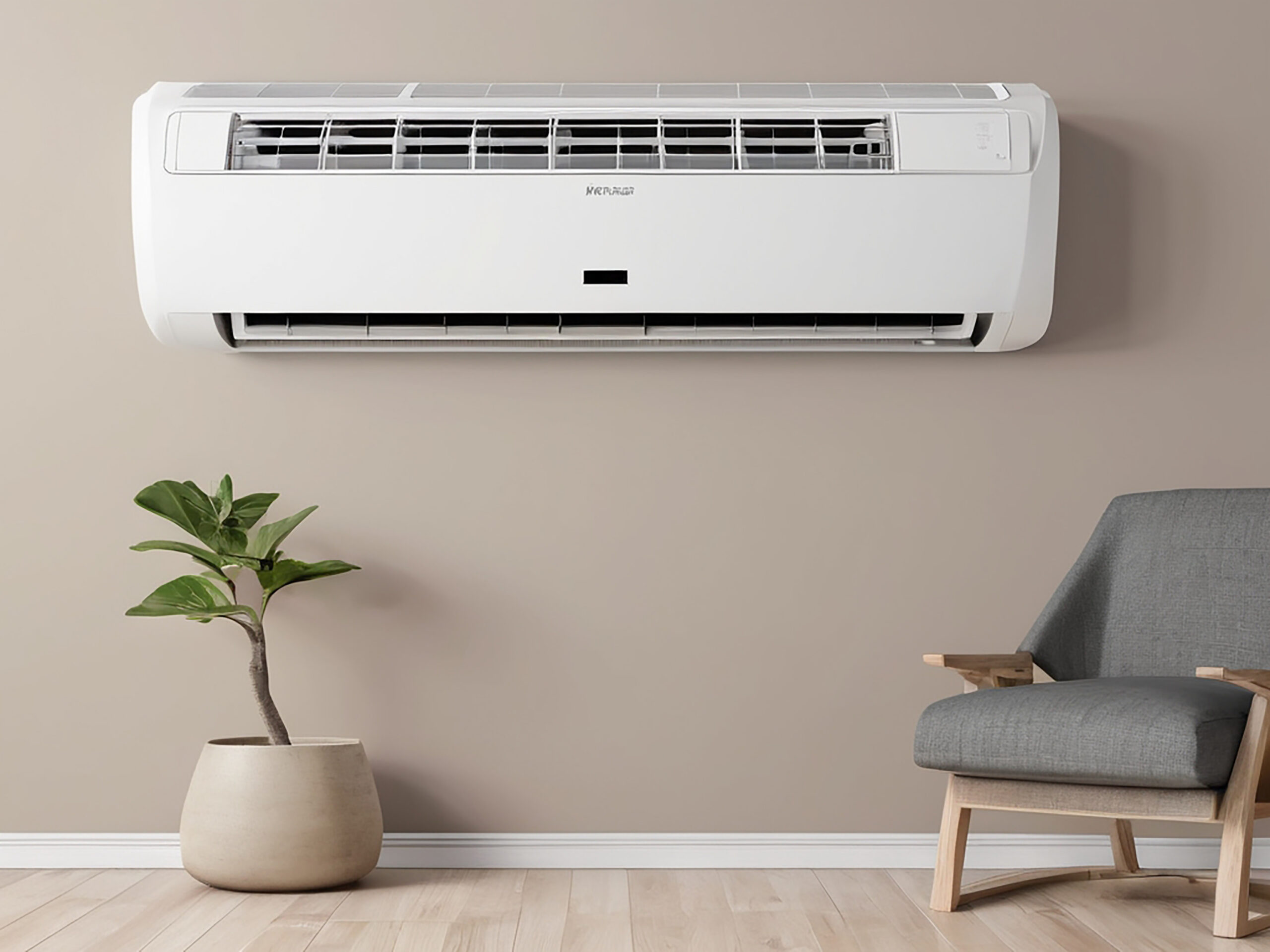Ever wondered why your air conditioner isn’t cooling as effectively as it used to? One possible culprit could be a lack of freon. This mysterious substance plays a pivotal role in your AC’s cooling process, and when it’s running low, you’ll start to notice.
Understanding Freon and Its Role in Air Conditioning

Diving right into the heart of the matter, it’s crucial to comprehend the fundamental aspects of freon and its central role in air conditioner operation.
The Basics of Freon
Freon, essentially, categorises as a cooling agent. It’s the trademark of a type of refrigerant that aids in extracting heat from your indoor environment and transferring it outdoors. Among numerous refrigerants available, such as R-22, R32, R-410A, you might often hear “freon” used as a generic term, primarily because of its widespread use in air conditioning systems in the past.
How Freon Functions in Air Conditioners
Are you curious about how freon works its magic within the labyrinth of your air conditioner?
First, the air conditioner absorbs indoor warmth by passing air over the evaporator coils, which contain freon. This transfer of heat converts freon from a low-pressure gas to a high-pressure one. The compressor then drives this high-pressure freon into the condenser coils, located outside where it relinquishes its heat. When expelling its heat, freon converts back into a low-pressure gas. This cycle, governed by the principles of phase conversion and pressure, continues repeatedly to serve the purpose of cooling your surroundings.
So, the freon in your air conditioner doesn’t burn out or get used up; it merely changes its phase and pressure and works perpetually until any unfortunate leak occurs. If you ever find your air conditioner switching on but not cooling, it might be time to inspect a potential freon leak.
What Happens When an Air Conditioner Runs out of Freon?
Given the fundamental role freon plays within an air conditioner, its absence can cause noticeable changes. When your system’s freon level droops, multiple signs may hint towards it. Also, running the AC without freon can lead to significant issues.
Initial Signs of Low Freon Levels
Keeping a keen eye on your air conditioner’s performance can help detect initial signs of low freon levels. For instance, lukewarm air coming out of vents, even on the coolest setting, is a common indicator. It means the compressor is running, but the system can’t cool the air in its usual capacity due to insufficient freon.
Decreased energy efficiency provides another clue. So, if you’re finding that your utility bills are rising inexplicably, it could be your AC battling to keep up with your cooling needs, with its diminished freon level.
Excessive condensation on the cooling coil or outdoor unit, or unusual hissing sounds, also point towards a potential freon leak. These signs, though subtle, are keys to avoid more significant issues down the line.
Consequences of Operating Without Freon
Running an air conditioner without any freon can lead to substantial consequences. Majorly, it increases strain on the system, predominantly on the compressor – the AC’s heart. Overburdening the compressor can lead to its failure, which can be quite an expense to repair or replace.
Besides, continuously running an inefficient, freon-depleted system can balloon your energy bills. Conservation-wise, it’s akin to leaving a water tap running endlessly, wasting precious energy resources.
Importantly, no freon means zero cool air. Regardless of how powerful your AC unit might be, lack of this significant component renders it incapable of cooling. You’ll be running a system that merely circulates air, without bringing down temperature.
So, it’s crucial to address freon loss promptly. Regular maintenance and professional inspections can help identify a freon leak early on, ensuring your AC’s optimal function and longevity. An efficient, well-maintained air conditioner isn’t just about comfort, it contributes to a sustainable, energy-efficient future as well.
Diagnosing and Addressing Freon Shortages
When it comes to air conditioning systems, detecting and addressing freon shortage is an essential part of maintenance and sustainability. A keen eye and the right professional help can extend your AC’s lifetime while avoiding unnecessarily high energy bills.
Identifying Freon Leaks
Quick detection implies quick fixes. So, being aware of the signs to look out for becomes crucial in identifying freon leaks promptly. While certain symptoms may already be familiar to you, such as lukewarm air or decreased energy efficiency, others might not be as noticeable. A leaking refrigerant can lead to hissing or bubbling sounds, often the first tell-tale signs that you’re dealing with a freon shortage. Besides, observe your air conditioner for any frost or ice on its coils. Excessive formation of ice, particularly if your unit is working overtime, typically indicates a short supply of freon.
Professional Repair and Freon Replacement
Recognising the signs is just the first step. You’ve got past that, now it’s time to address the problem. For times like these, don’t DIY, but rather opt for professional assistance. Licensed HVAC professionals possess the knowledge and tools necessary for detecting exactly where the leaks are occurring and taking measures to rectify them efficiently. After the leak is repaired, they’ll proceed to replenish the freon levels, ensuring your Air Conditioning system will function optimally once again.
Remember, your air conditioner isn’t a fan but a complex system. It’s designed to offer a chilly relief on those uncomfortably hot days. So, when the time comes for a freon top-up or replacement, don’t hold back on contacting a professional to ensure your comfy and cool sanctuary remains that way.
Preventing Freon Issues in Air Conditioners

Effective prevention of freon issues in air conditioning (AC) systems plays a central role in optimizing their efficiency and longevity. Let’s investigate into some pragmatic measures you can take to get ahead of freon problems before they escalate.
Regular Maintenance Tips
Regular maintenance presents an effective means of preventing freon leaks in air conditioners. Scheduling routine professional inspections, specifically as seasonal shifts approach, ensures your AC system stays in prime condition. Employing a three-pronged approach works best:
- Mid-year Maintenance: This involves servicing your AC at the onset of demanding periods, such as summer. It’s designed to improve system operations during times of peak use.
- Pre-winter Checks: Winter’s harsh conditions demand tailored system checks. To ensure your AC system’s survival, pre-winter maintenance remains an essential service.
- Prompt Follow-ups: Should the maintenance check-up highlight any anomalies, ensure a quick rectification. Issues such as refrigerant leaks, if left unattended, can escalate the operating strain on your AC.
Timely cleaning and replacement of air filters also form part of the routine care. With consistent maintenance checks, potential freon leaks can be pre-empted and mitigated appropriately.
Early Detection of Freon Problems
Detecting freon issues at the earliest stages forms a significant part of any prevention strategy. Remember, diagnosing freon leaks isn’t always straightforward. They manifest in various ways, like unexpected rises in energy bills or decreased cooling efficiency. For instance, if your rooms take an unusually long time to cool, or the AC system runs for more extended periods, these could be early warning signs.
Being attentive to unusual system noises or frost on the AC coils holds great value. These indicators usually point towards potential refrigerant issues that necessitate immediate professional attention. It’s crucial not to become complacent if your AC appears to be running smoothly. Even the best performing systems can spring unexpected surprises if not monitored vigilantly.
By integrating these regular maintenance tips and early detection strategies, you could dramatically reduce the potential of encountering AC problems related to freon issues. Remember, prevention is always better than cure, especially when it comes to the inner workings of your air conditioning systems.
Conclusion
So there you have it. Your air conditioner’s performance hinges on the level of freon. If it’s running low, you’ll face issues like reduced cooling efficiency, increased energy bills, and potential system damage. The best way to tackle this? Stay proactive. Regular maintenance checks, especially mid-year and before winter, can nip potential freon issues in the bud. Don’t ignore any signs of trouble, be it unusual noises, frost on coils, or sudden spikes in energy bills. Remember, early detection is your best defence against freon-related problems. By taking these steps, you’ll keep your AC running smoothly and efficiently, saving you both hassle and money in the long run.
